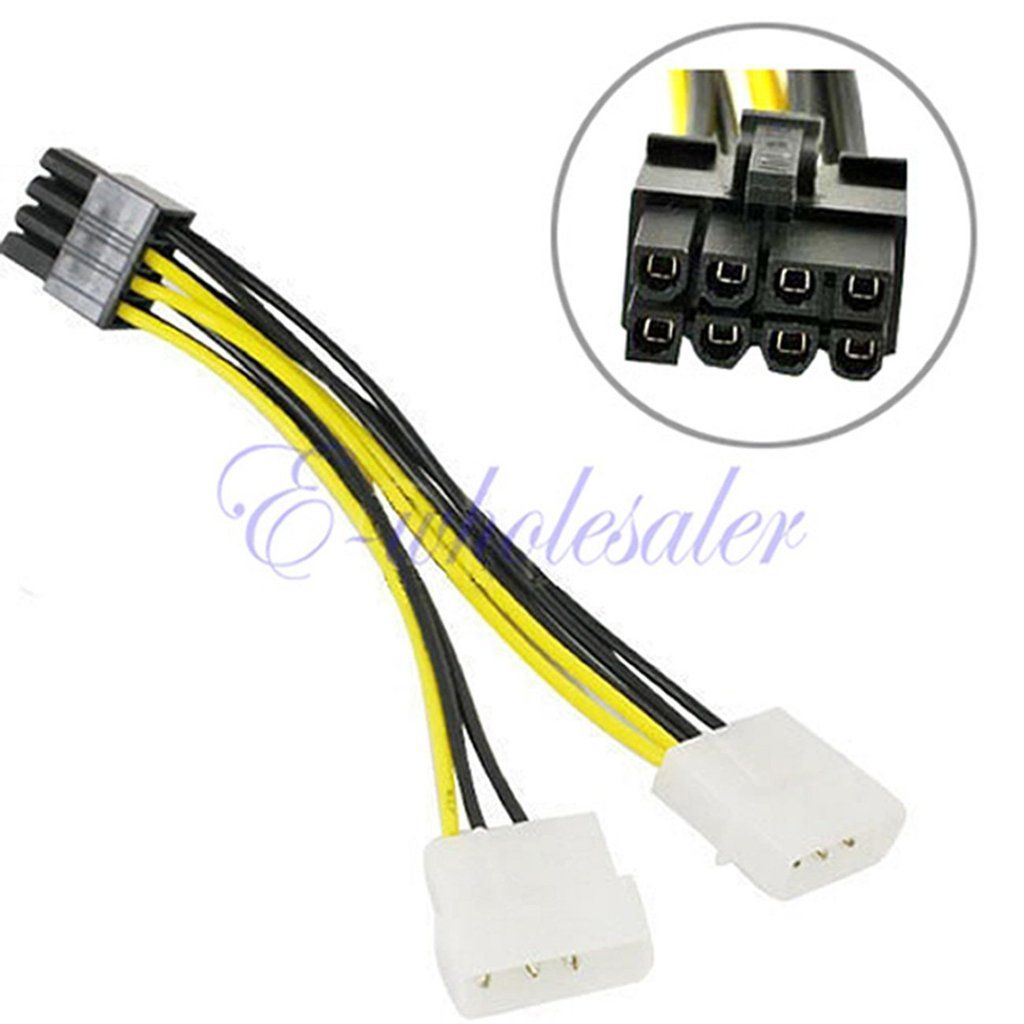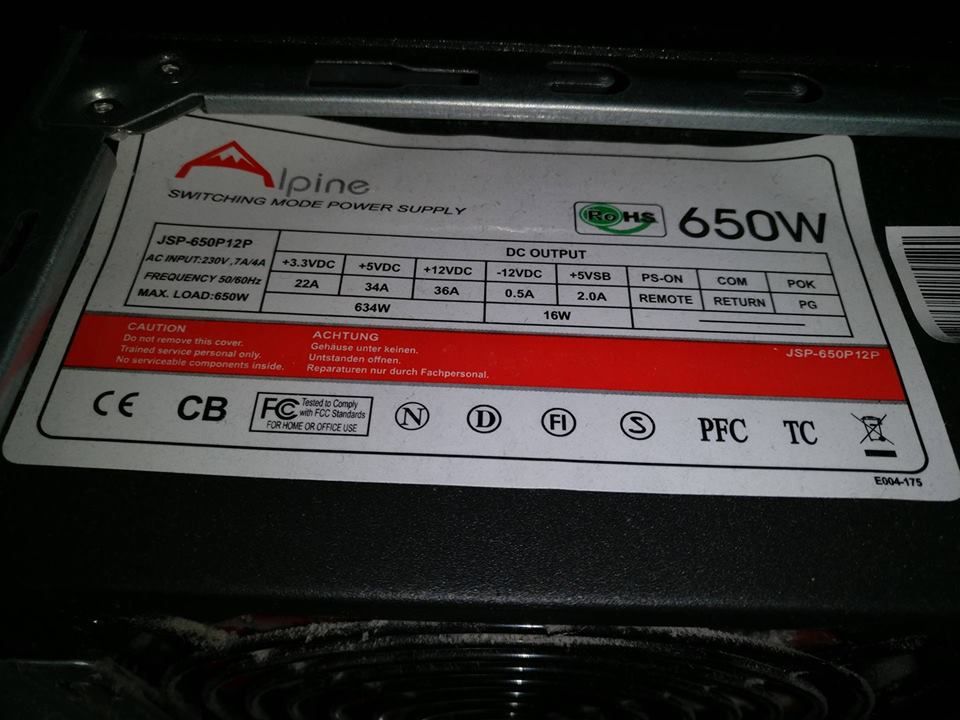So I tried installing a radeon 5830 into an older PC with a non-modular poper supply. The 5830 needs a has a 6 pin and an 8 pin power connector, but the PSU only had a 6pin PCI power connector.
So I tried using a molex for the 8 pin - it looked something like the image below except the 8 pin pci connector only visibly had 6 metal pins in it. I presumed that wasn't ideal but tried it anyway and it worked but did result in some crashes under load. So presuming the 6 metal pins weren't delivering enough power I ordered the connector below, which does have the full 8 metal contacts and tried that. The PC was running Dark Souls 3 for a bit then there was a loud bang and sparks.

Now I've always been pretty ignorant as to how PSUs work and would like to take this opportunity to change that. Why was what I did stupid and what should I have done? Should I try to turn the PC back on, removing the GPU or will that risk further damage to other components?
So I tried using a molex for the 8 pin - it looked something like the image below except the 8 pin pci connector only visibly had 6 metal pins in it. I presumed that wasn't ideal but tried it anyway and it worked but did result in some crashes under load. So presuming the 6 metal pins weren't delivering enough power I ordered the connector below, which does have the full 8 metal contacts and tried that. The PC was running Dark Souls 3 for a bit then there was a loud bang and sparks.

Now I've always been pretty ignorant as to how PSUs work and would like to take this opportunity to change that. Why was what I did stupid and what should I have done? Should I try to turn the PC back on, removing the GPU or will that risk further damage to other components?
Last edited:



